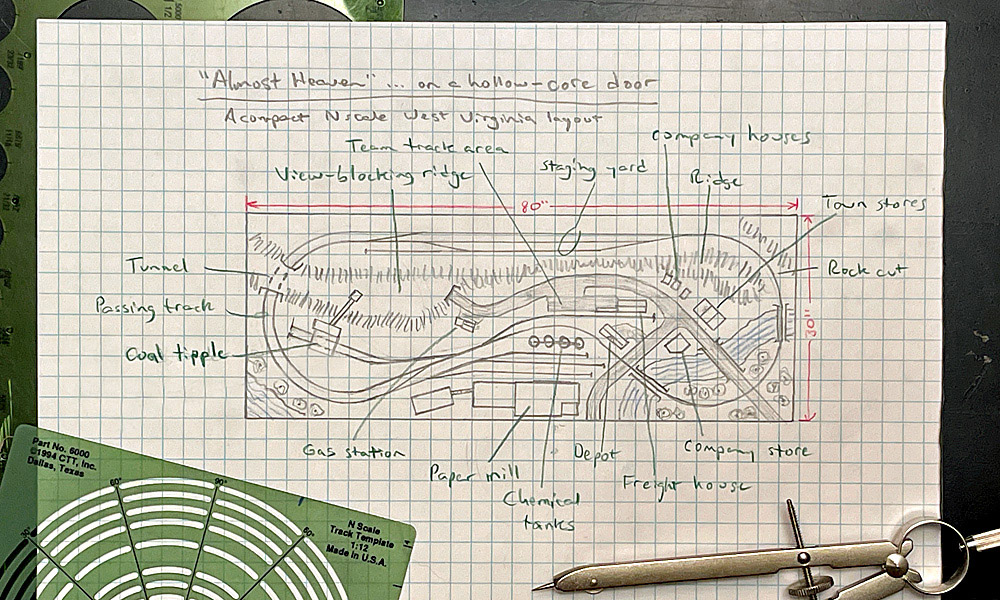
An N scale layout on a door is to that scale what a 4 x 8-foot table is to HO: a popular and convenient platform on which to build a compact layout. And for good reason. A hollow-core door is a lightweight, rigid surface, easy to handle and build on, and not too expensive. It’s […]
Read More…
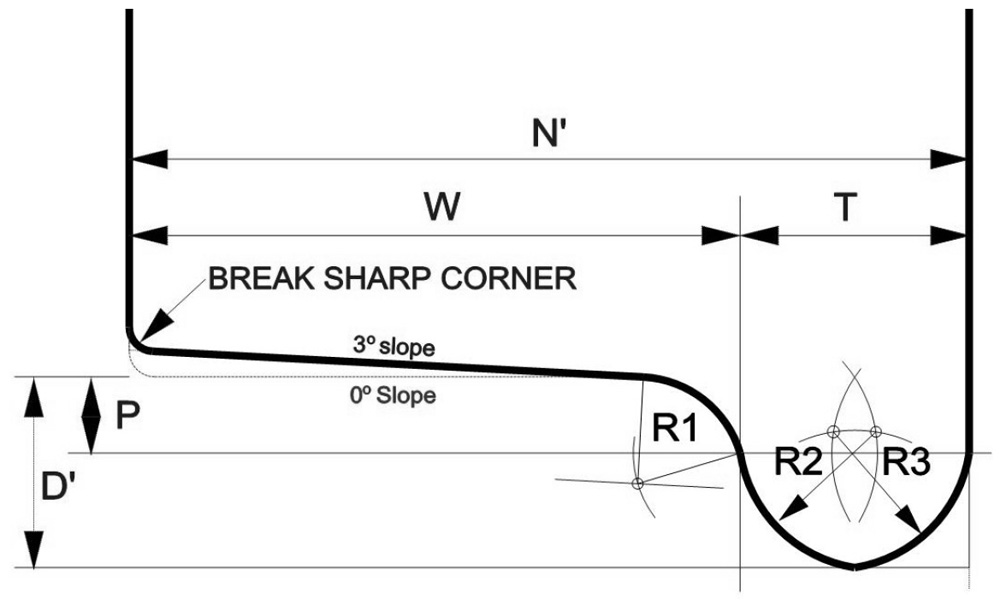
Q: I want to replace some wheelsets on my 1:32 passenger cars but don’t know where to measure the model railroad car wheels’ diameter. I’d like to keep the wheel sizes the same with the new as the old so I don’t need to deal with altering the height of my couplers. Is the wheel […]
Read More…
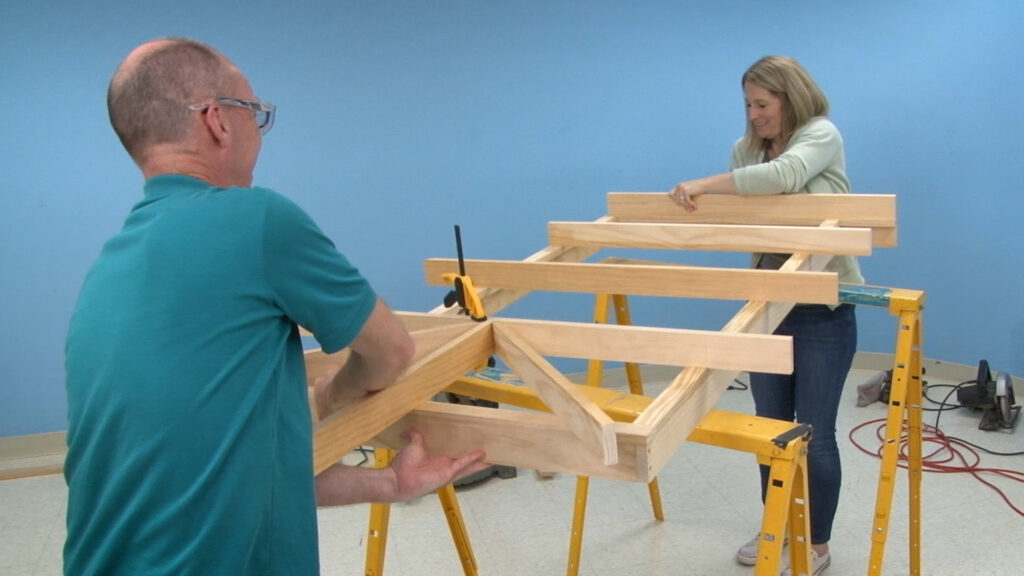
One of the first things that you must do when building a model train layout is decide which style of benchwork you will build for the layout. Simple tables A common starter style of model railroad benchwork is just a 4 x 8 sheet of plywood on a tabletop. My first layout was on a […]
Read More…
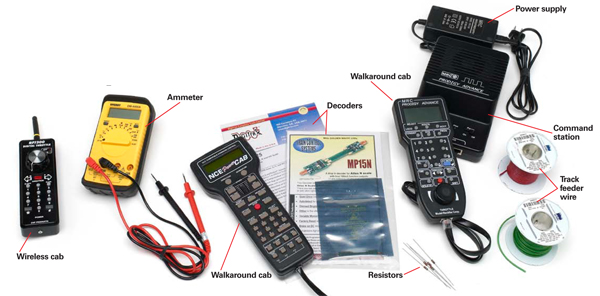
Digital Command Control terms you should know: Those of you new to Digital Command Control (DCC), and even those who have a pretty good grasp on the basics, may benefit from a review of DCC terminology. This month we’ll take a look at some of the commonly used terms and their definitions. I’ve divided the […]
Read More…
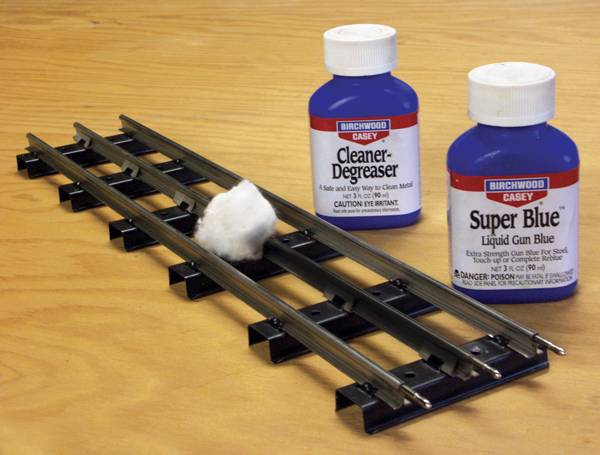
Tips for better tubular track Stamped metal track has been around for more than a hundred years. This “old reliable” track system is very sturdy and works equally well for permanent and non-permanent layouts. I start by darkening the center rail with cold metal bluing compound. Bluing compound is used in firearms restoration and is […]
Read More…
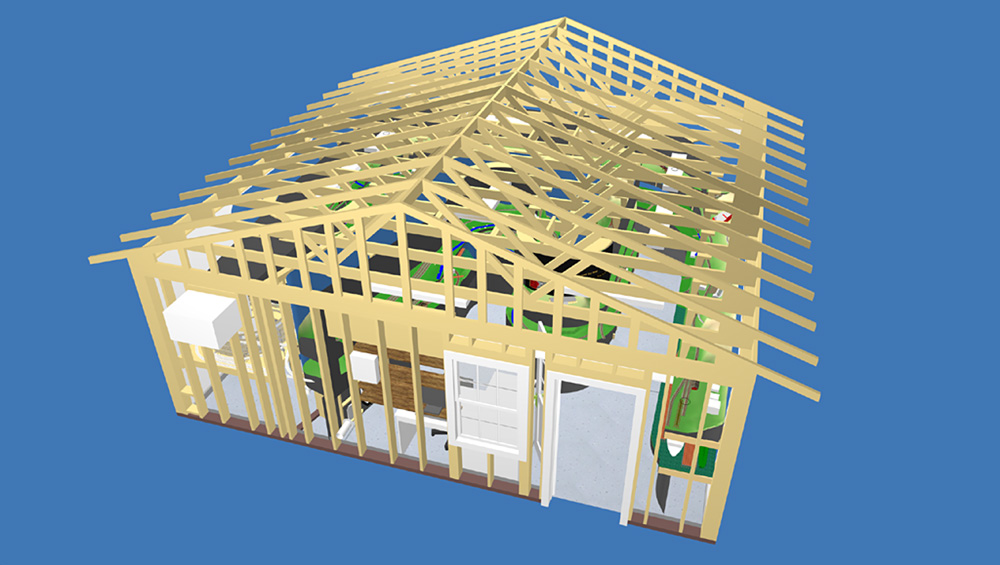
Although pencil and paper still reigns as king of the ways to plan a model railroad layout, computer-aided design (CAD) track planning software is increasingly popular as model railroaders become more comfortable using computers. This is a roundup of current (as of 2023) track planning software designed to give you a good idea of the […]
Read More…
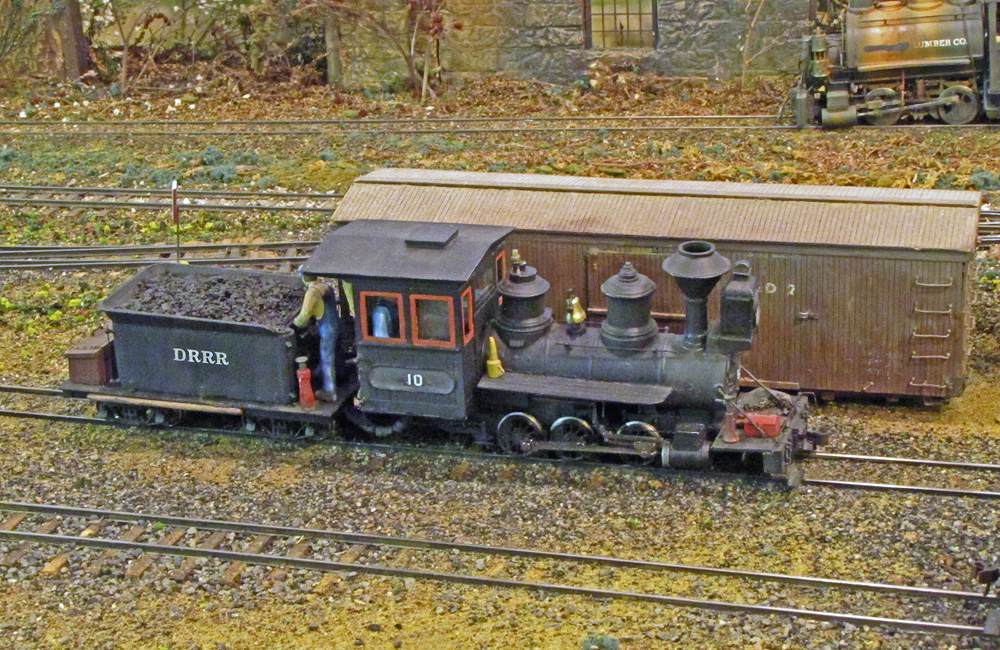
Q: What is HOn3 scale? If it uses HO scale track (1:87 gauge), it seems the rolling stock must be scaled wider and taller. Conversely, if I modify an HO scale/gauge locomotive for narrow gauge, I’ll need to build new, narrower track. Help me understand this. – Mark Dice A: Hi, Mark. Your second guess is the […]
Read More…
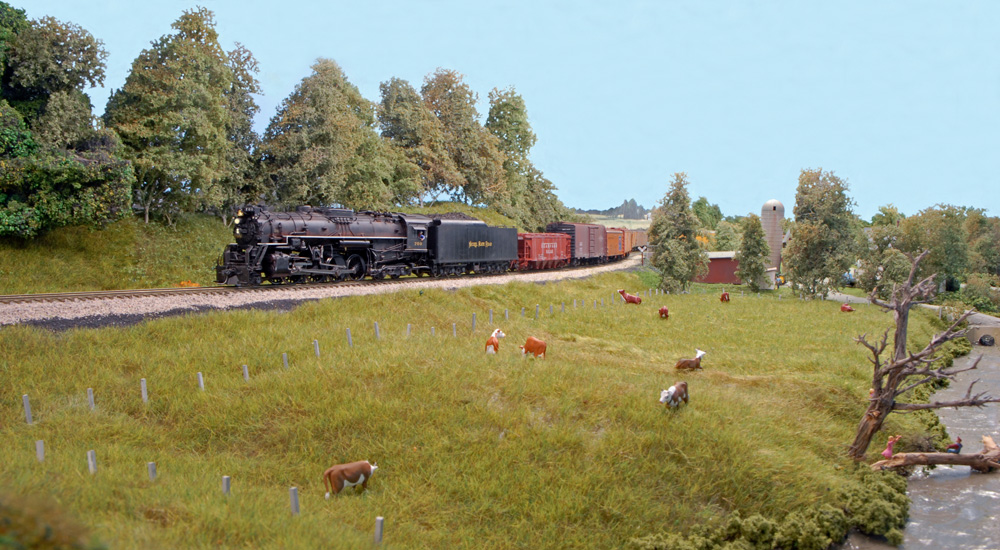
One of the most important decisions facing any model railroader is choosing an era to model. Choosing what railroad to model is arguably easier. You may choose to model the railroad that ran through your hometown when you were young and impressionable, or perhaps a railroad you often see today. But in either case, that […]
Read More…
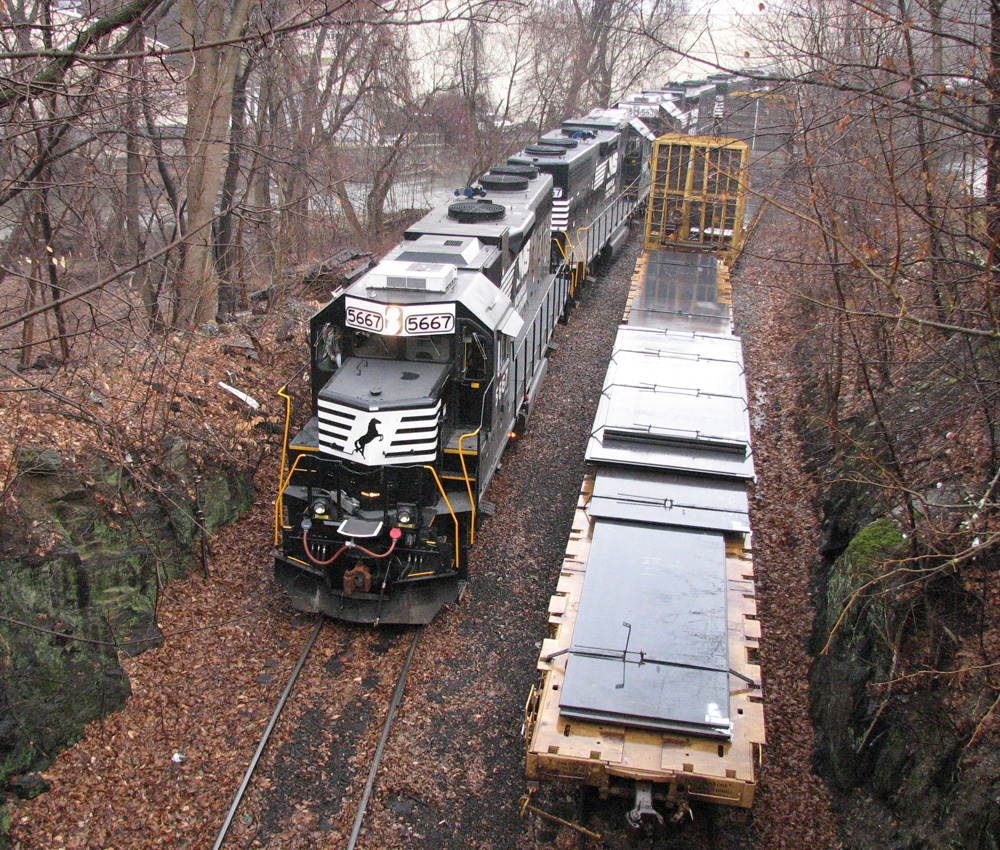
Q: I’m planning on making steel slab, H-column, and I-beam loads for my run through freight trains. What is the width, length, thickness and height of the load for these structural steel loads? – James Shepard A: Hi, James. You asked a similar question not long ago, which I answered in my January 2023 “Ask […]
Read More…
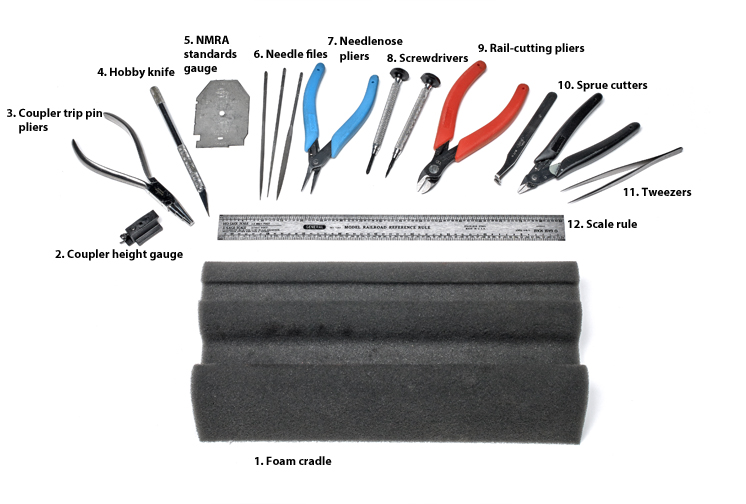
Essential tools for model railroaders Essential tools for model railroaders: A basic tool kit is something many newcomers forget about during the initial excitement of buying their first train set. But as time goes by, they soon find out that model railroad equipment includes all sorts of small screws, nuts, and bolts hidden in the […]
Read More…
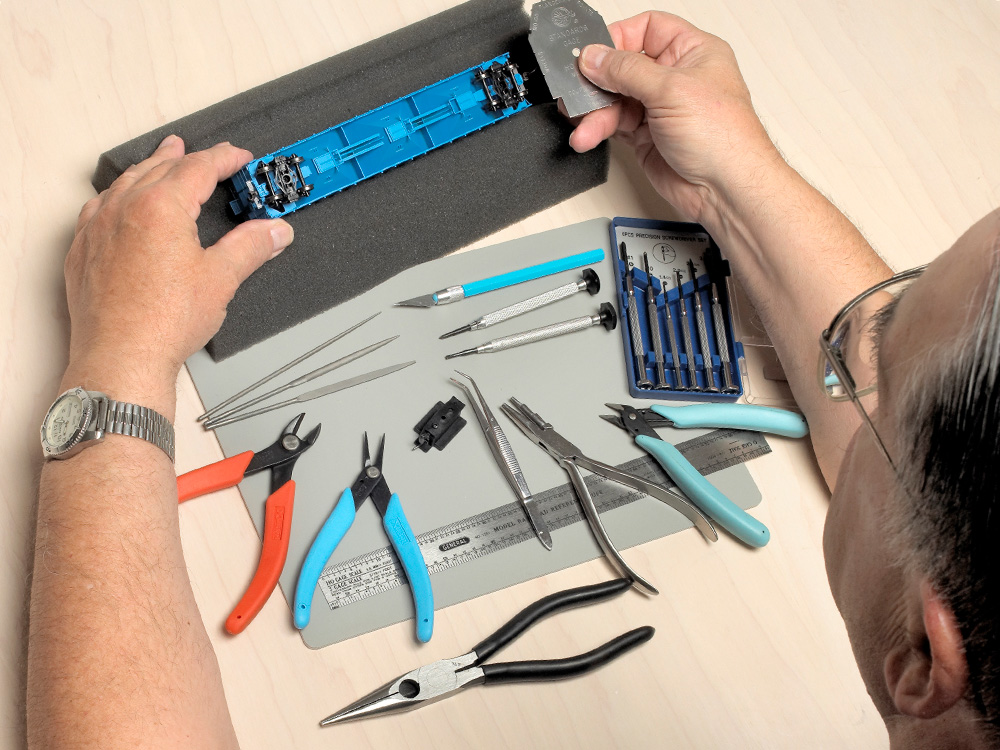
What tools does a model railroader need? Q: What are the tools needed to take an empty room to a full working model railroad? My focus is to build a layout with the best scenery, from streets to tall mountains and everything in between. – Carroll Shirkey, Seattle, Wash. A: Many beginners are left wondering […]
Read More…
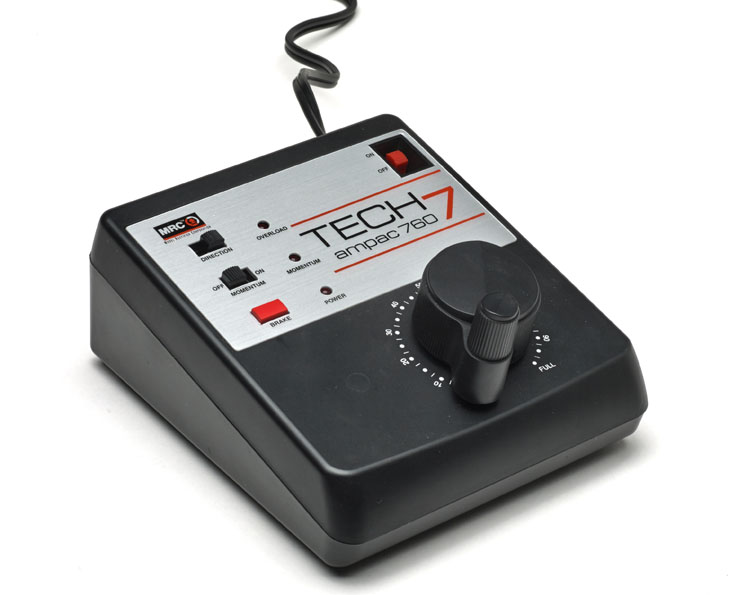
The simplicity of operating with a DC power pack like this MRC Tech7 is just one of several reasons to use DC block control on your model railroad. Though Digital Command Control may be the wave of the future, DC has its advantages and die-hard adherents. MRC photo Digital Command Control’s fervent fans to the […]
Read More…












